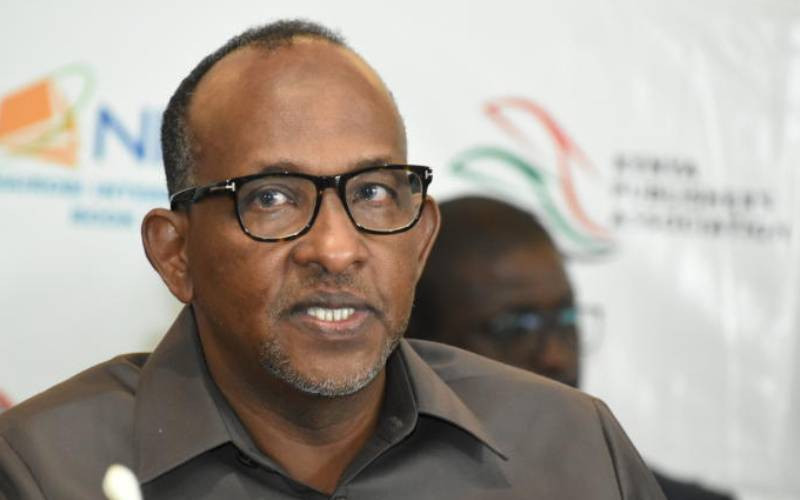By NANJINIA WAMUSWA
Kenya: Majority of residents have regained improved health since Segera Mission Dispensary introduced supplementary programme to rescue malnourished children .
But behind this noble initiative is a chain of struggles undermining the programme. During this writer’s visit, almost 1,000 women attended the clinic to pick food supplements. Sadly, over 500 left empty handed.
“It is unfortunate that l have missed food. I come from far and cannot return here tomorrow,” one aged woman said.
Serge Musasilwa, Programme Assistant Director says the facility faces challenges since it is the only one serving thousands of locals. The biggest challenge, he says is finance. They spend over Sh200,000 monthly, privately financed by Janice Gleason and her husband Richard Skow.
“We might be forced to close it down but our biggest worries are locals who entirely depend on this facility,” regrets Musasilwa, adding that they are trying to reach out to well wishers and financiers to help keep the programme.
Create awareness
The facility is understaffed due to lack of money to hire more staff. He says they started an outreach programme in 2011 to access malnourished children who cannot access the facility. “We do mobile screening, treatment, give food supplement and create awareness,” he explains.
More 80 per cent of children are under the care of their grandparents who do not know the right diet for the children. The programme targets three groups; children below five, lactating and pregnant mothers. Assumpta warns pregnant mothers would give birth to malnourished children if they feed on poor diets.
“The more severe forms of malnutrition are marasmus and kwashiorkor which if not treated lead to death,” she warns. Studies show that malnutrition in children especially below five years leads to low cognitive skills which are directly related to poor performance in schools and consequently low chances of meaningful employment.
Chief Nutrition Officer-Ministry of Medical Services, Rosemary Ngaruro explains that poor nutrition leads to increased health care costs at national and household level and early and premature deaths.
It leads to more spending, therefore no savings are made for investment and poverty circle continues. It also causes them to be overweight which results in diseases such as hypertension, heart disease, diabetes and cancer. Ngaruro says the situation can be reversed if Government urgently addresses food security.
 The Standard Group Plc is a
multi-media organization with investments in media platforms spanning newspaper
print operations, television, radio broadcasting, digital and online services. The
Standard Group is recognized as a leading multi-media house in Kenya with a key
influence in matters of national and international interest.
The Standard Group Plc is a
multi-media organization with investments in media platforms spanning newspaper
print operations, television, radio broadcasting, digital and online services. The
Standard Group is recognized as a leading multi-media house in Kenya with a key
influence in matters of national and international interest.
 The Standard Group Plc is a
multi-media organization with investments in media platforms spanning newspaper
print operations, television, radio broadcasting, digital and online services. The
Standard Group is recognized as a leading multi-media house in Kenya with a key
influence in matters of national and international interest.
The Standard Group Plc is a
multi-media organization with investments in media platforms spanning newspaper
print operations, television, radio broadcasting, digital and online services. The
Standard Group is recognized as a leading multi-media house in Kenya with a key
influence in matters of national and international interest.






